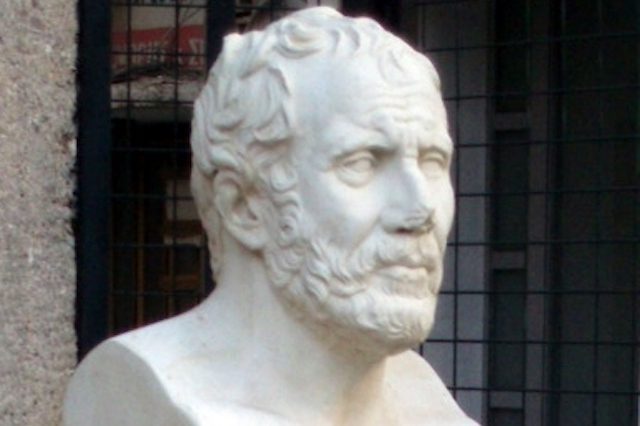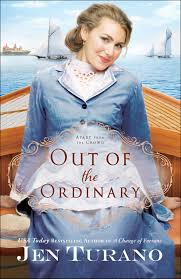 Theories About
the
Meaning of Life
Theories About
the
Meaning of Life
Why are we here? What is the purpose of our lives? It’s a question that has probably popped into everyone’s head at least once. These are five of the most interesting theories.
5. Hedonism
Hedonists believe that pleasure and happiness are intrinsically valuable, and pain and sadness are dis-valuable. Their argument for the meaning of life is: shouldn’t we live our lives to be as happy and as pleasurable as possible?
As it stands right now, we’re only on Earth for a short period of time, but we could die at any minute. While a lot of people have faith that there is an afterlife, there is no guarantee of one. Therefore, shouldn’t we try to have as many pleasurable experiences as we can while we’re alive? Why not eat the best food, enjoy the finest drinks, and pursue any type of carnality that we want? At the very least, shouldn’t we spend our lives avoiding pain and displeasure?
4. Stoicism
Stoicism is a school of philosophy that dates back to Ancient Greece, and it was taught by Zeno of Citium. Stoicism is about finding inner peace, because that is something that is unshakable. Other things in your life will change. Like, your bank account will fluctuate and your career path may change directions, because those are outside forces that we can’t control. But we can control what goes on in ourselves.
Stoicism is also about overcoming destructive emotions and behaviors to achieve inner calm. This doesn’t mean extinguishing the feelings, but transforming them using reason and clear judgment.
Some stoics have advanced Zeno’s theories and believe that being actively involved in life is a major component of the meaning of life. Being active in life includes working and meeting life’s demands. For example, if you slept all the time, you wouldn’t be living.
Essentially, stoicism is about self-control and being actively involved in life. Through this, you’ll find inner peace and you’ll be free from suffering.
3. Existentialism
Basically, we have to define the meaning in our own life by using free will, our choices, and personal responsibility. Also, we should make these choices free of law, ethical rules, and tradition. However, that isn’t to say there are no consequences, because there obviously are.
Existentialism is about choosing what you want to do with your life and how you’ll find meaning; just be prepared to deal with the repercussions.
2. PhysicsJeremy England, an assistant professor at MIT, says that life “should be as unsurprising as rocks rolling downhill.” His theory is that objects, like rocks, plants, and animals, absorb and dissipate energy. Rocks absorb very little energy and release a little bit back. Living things, on the other hand, are really good at absorbing energy and dissipating only a little bit of it.
When atoms are hit by energy, like from the sun or from a chemical fuel, and they are surrounded by a heat bath, such as an ocean or atmosphere (like the conditions on Earth), the atoms will reorganize themselves to better dissipate the energy. In certain conditions, the reorganization inevitably leads to life.
On Earth, those atoms organized into a single cell and about 3.5 billion years ago, it started to evolve and eventually branched apart to become every single species on Earth.
So that’s it. The reason we’re here is because life was bound to happen sometime. That’s… kind of disappointing.
1. Projects of Worth
Susan Wolf is a professor of philosophy at the University of North Carolina at Chapel Hill, and she has an interesting perspective on the meaning of life.
In her essay “The Meanings of Lives,” Wolfe argues that the question “does our existence have meaning?” only has two possible answers – either there is a God or gods, who created us for some reason, or there is no God, or gods, and our existence is random and has no meaning. That being said, she does not think that individual lives do not have meaning.
One of her early arguments in the essay is that she doesn’t think that happiness is an important aspect to the meaning of life. She points to people like Albert Einstein, Mother Theresa, and Mahatma Gandhi, who didn’t exactly lead happy lives, but to suggest their lives were meaningless would be outrageous. Meanwhile, someone who sits at home all day drinking beer and watching TV may be happy, but their lives lack meaning. But man, would they be so happy.
Wolf’s theory of having a meaningful life is to actively be engaged in a project or projects of positive value and the projects have to be successful.
What does that mean, exactly? Well, to be actively engaged should be pretty clear, but what are positive projects? That term is purposely vague because value means something different to everyone. For example, if you hate sports you may not see the value in someone training to be an elite athlete. Likewise, if you don’t read books, you may not see the value of someone trying to write a novel. Also, positive value does not mean it has to be moral nor does it necessarily have to better life for your fellow human.
Another main part of her theory is that you have to at least be a little successful in your project. An example she gives is a scientist who spends his entire life working on a single project. Then a week before he is about to publish it, another scientist publishes the same results that they discovered independently. His life would sadly be meaningless.
Wolf says that by being involved in projects of worth, instead of just pursuing things that make us happy, shows that we see value in something else besides ourselves, which in turns creates meaningful lives.
The Meaning of Life
(click on for video)
– Seriously? Rate this:Share this:




